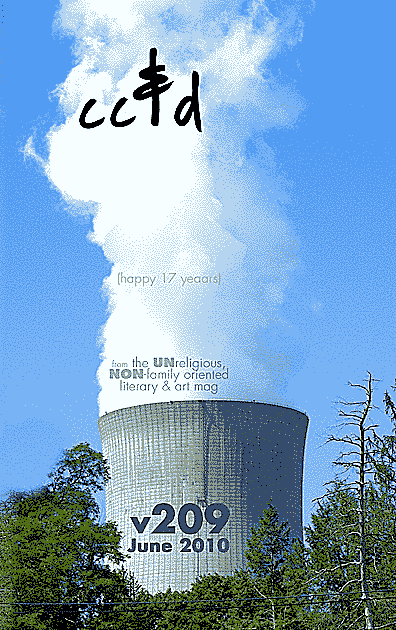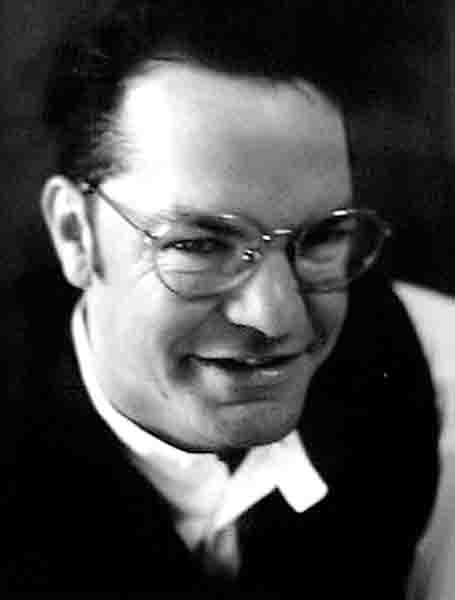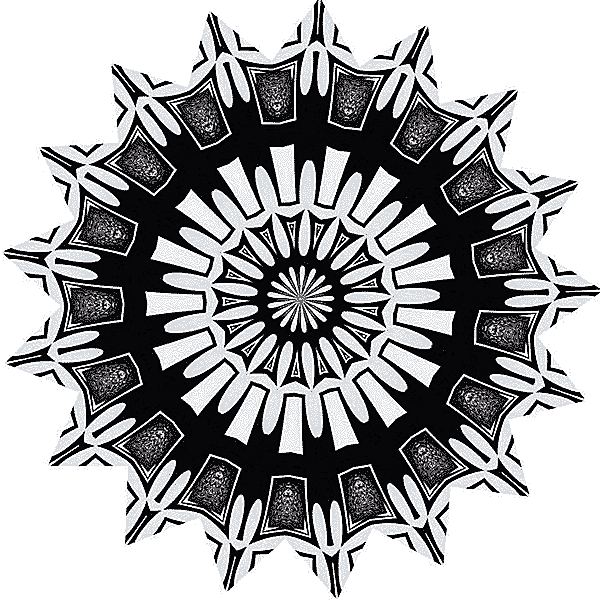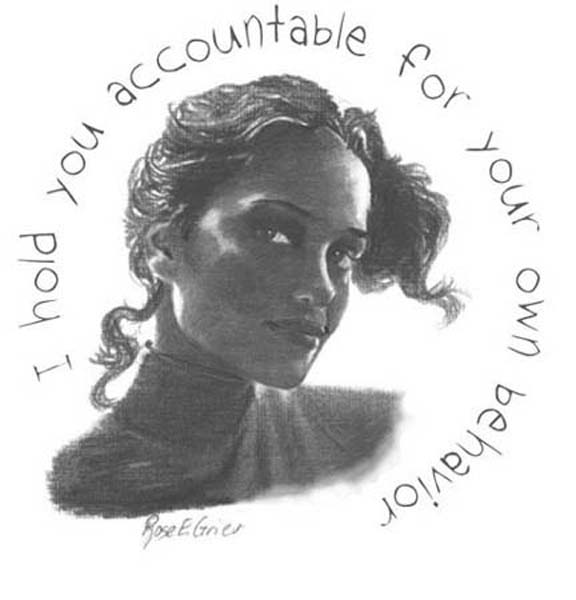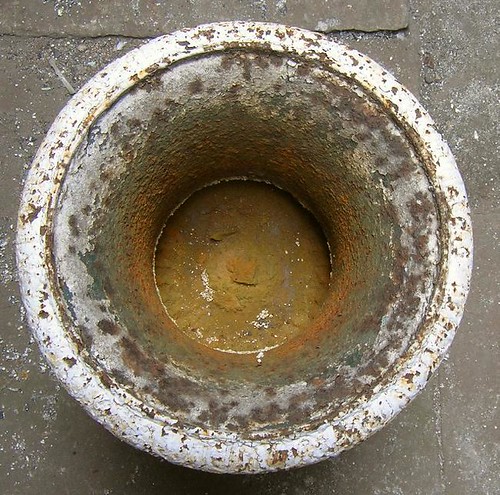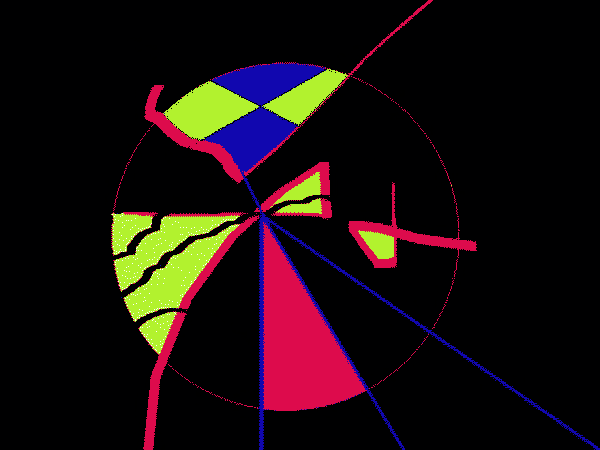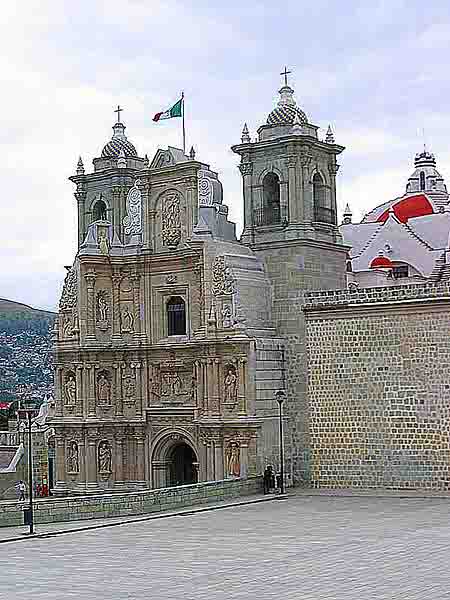The Bedtime Story
Danny Rider
 Tommy and I lived with our mother in a white trailer at the foot of a red mountain. The mountain was huge, reaching into the sky like a monolithic giant, and was positioned just so that the sunrise would never hit us, leaving our little trailer in its shadow until early afternoon. Our home was only a five minute walk to the base of the rock wall, and there were never any other houses or roads or people there. Tommy and I lived with our mother in a white trailer at the foot of a red mountain. The mountain was huge, reaching into the sky like a monolithic giant, and was positioned just so that the sunrise would never hit us, leaving our little trailer in its shadow until early afternoon. Our home was only a five minute walk to the base of the rock wall, and there were never any other houses or roads or people there.
 Scattered all the way up to the foot of the mountain were boulders that had broken off from their source. Large parts of the mountain’s rock wall had turned deep brown in the sun. Mom said that it was because of moisture inside the stone. She said that it was a lot like getting a sunburn in summer, only the mountain could never get rid of the sunburn like we could. One time Tommy used a whole bottle of sunscreen to cover a small boulder we were sitting next to. Mom laughed and told him that rocks couldn’t use sunscreen, and Tommy got upset because he couldn’t help the rock from getting burned. We got sunburned the next day because Tommy had used the last of the sunscreen, and Mom had to make a special trip into town to get more. Scattered all the way up to the foot of the mountain were boulders that had broken off from their source. Large parts of the mountain’s rock wall had turned deep brown in the sun. Mom said that it was because of moisture inside the stone. She said that it was a lot like getting a sunburn in summer, only the mountain could never get rid of the sunburn like we could. One time Tommy used a whole bottle of sunscreen to cover a small boulder we were sitting next to. Mom laughed and told him that rocks couldn’t use sunscreen, and Tommy got upset because he couldn’t help the rock from getting burned. We got sunburned the next day because Tommy had used the last of the sunscreen, and Mom had to make a special trip into town to get more.
 We were only aware that there was more to our world when we looked at the long, winding dirt road that went from the foot of our doorstep to out and over the uneven desert landscape, following the gullies and ditches, dodging boulders and then disappearing out past the horizon. The only time we would see anything come or go down that road was when somebody came to visit us, or when mom would get into her beat-up, uncovered Jeep and head out to get us food and supplies. She never took us with her, because she said if we stayed home, we couldn’t go very far and so she never would have to worry about losing us. Mom said we were so lucky to live this way. We were only aware that there was more to our world when we looked at the long, winding dirt road that went from the foot of our doorstep to out and over the uneven desert landscape, following the gullies and ditches, dodging boulders and then disappearing out past the horizon. The only time we would see anything come or go down that road was when somebody came to visit us, or when mom would get into her beat-up, uncovered Jeep and head out to get us food and supplies. She never took us with her, because she said if we stayed home, we couldn’t go very far and so she never would have to worry about losing us. Mom said we were so lucky to live this way.
 It was on a day that Mom was getting ready to go into town when Bradley came. Tommy and I were up near the foot of the mountain chasing lizards that had been basking in the sun all afternoon. Mom never had a problem letting the two of us run wild. My Aunt Shelly would always complain about me doing the same activities as Tommy. She would say that, “It wasn’t right to bring up a young lady like that.” But I never really saw myself as a young lady. I was content with just being Lain. It was on a day that Mom was getting ready to go into town when Bradley came. Tommy and I were up near the foot of the mountain chasing lizards that had been basking in the sun all afternoon. Mom never had a problem letting the two of us run wild. My Aunt Shelly would always complain about me doing the same activities as Tommy. She would say that, “It wasn’t right to bring up a young lady like that.” But I never really saw myself as a young lady. I was content with just being Lain.
 Tommy had just managed to grab hold of a big collared lizard when I saw the trail of dust that signaled the arrival of a visitor. I pointed it out to Tommy, and as he turned to look, the lizard bit down on his finger. Tommy yelped and wrapped his other hand around the lizard’s head, preventing further attacks. Tommy had just managed to grab hold of a big collared lizard when I saw the trail of dust that signaled the arrival of a visitor. I pointed it out to Tommy, and as he turned to look, the lizard bit down on his finger. Tommy yelped and wrapped his other hand around the lizard’s head, preventing further attacks.
 I moved a bit forward down the slope and said over my shoulder, “Race you!” then took off at full speed towards our house. I could hear Tommy whine about my deceptive start, but one look over my shoulder confirmed that he was right behind me with the lizard still in his hand. He held it close to his chest and was careful not to startle it, even though he was hopping and dodging around bushes and rocks. Even though I was older, he was beginning to give me a run for my money, so I had started resorting to trickery to win races. Tomboy or not, I wasn’t about to let my little brother one-up me. I moved a bit forward down the slope and said over my shoulder, “Race you!” then took off at full speed towards our house. I could hear Tommy whine about my deceptive start, but one look over my shoulder confirmed that he was right behind me with the lizard still in his hand. He held it close to his chest and was careful not to startle it, even though he was hopping and dodging around bushes and rocks. Even though I was older, he was beginning to give me a run for my money, so I had started resorting to trickery to win races. Tomboy or not, I wasn’t about to let my little brother one-up me.
 We raced back towards home, me out in front at full gait, with Tommy and lizard right behind. We arrived at the foot of our doorstep entirely out of breath (except for the lizard), and plopped down on the ground, panting and heaving. Mom swung open the door with an armful of boxes she was going to take with her into town. She looked down at us and rolled her eyes. We raced back towards home, me out in front at full gait, with Tommy and lizard right behind. We arrived at the foot of our doorstep entirely out of breath (except for the lizard), and plopped down on the ground, panting and heaving. Mom swung open the door with an armful of boxes she was going to take with her into town. She looked down at us and rolled her eyes.
 “What are you two up to now?” she asked, the same way she would every time Tommy and I came up with a new game to play. Before either of us could wheeze out our excitement, the rumbling sound of gravel and dirt under tires came from the distance, and Mom looked to see who was coming as she packed up the boxes in the jeep. She never got excited over visitors, and I’m sure she didn’t think much about it until the red Ford pulled up into the drive, dust covering the hood, hiding a shiny newness I had only seen in Christmas presents. Mom stood there in a strange state of shock. I couldn’t tell if she knew who it was, or was simply annoyed by the arrival of a complete stranger. Her face scrunched up, she peered into the truck’s windshield. Then the driver, who we couldn’t really get a good look at through the dusty windows, got out and draped his arms over the top of the truck cab. “What are you two up to now?” she asked, the same way she would every time Tommy and I came up with a new game to play. Before either of us could wheeze out our excitement, the rumbling sound of gravel and dirt under tires came from the distance, and Mom looked to see who was coming as she packed up the boxes in the jeep. She never got excited over visitors, and I’m sure she didn’t think much about it until the red Ford pulled up into the drive, dust covering the hood, hiding a shiny newness I had only seen in Christmas presents. Mom stood there in a strange state of shock. I couldn’t tell if she knew who it was, or was simply annoyed by the arrival of a complete stranger. Her face scrunched up, she peered into the truck’s windshield. Then the driver, who we couldn’t really get a good look at through the dusty windows, got out and draped his arms over the top of the truck cab.
 Mom’s jaw dropped and she squealed, “Bradley!” She ran to greet him and he swept her up in a hug that lasted for a minute while Tommy and I just stood there. Mom’s jaw dropped and she squealed, “Bradley!” She ran to greet him and he swept her up in a hug that lasted for a minute while Tommy and I just stood there.
 Bradley was tall and skinny. He was muscled, and his body fit well into the jeans and short-sleeved flannel shirt he wore. His face and arms were a dark tan, deep and ruddy from seeing too much sun, and his complexion almost matched that of my mom’s except hers was slightly lighter. He wore small round glasses that tinted sharply in the sun and he had black hair pulled back into a ponytail; sharp shots of silver and gray ran from his temples. He looked young when he smiled, which he was doing a lot of as he gave Mom that big hug. His bright smile cracked his face, and his nose pointed sharply with his wide grin. Bradley was tall and skinny. He was muscled, and his body fit well into the jeans and short-sleeved flannel shirt he wore. His face and arms were a dark tan, deep and ruddy from seeing too much sun, and his complexion almost matched that of my mom’s except hers was slightly lighter. He wore small round glasses that tinted sharply in the sun and he had black hair pulled back into a ponytail; sharp shots of silver and gray ran from his temples. He looked young when he smiled, which he was doing a lot of as he gave Mom that big hug. His bright smile cracked his face, and his nose pointed sharply with his wide grin.
 “Maggie Holt, how in the heck have you been!” he said, holding her in his long arms. “You know it took me two years of calling around a bunch of old phone numbers before I found out where you had gone! I couldn’t even believe it when your sister told me where you were at.” “Maggie Holt, how in the heck have you been!” he said, holding her in his long arms. “You know it took me two years of calling around a bunch of old phone numbers before I found out where you had gone! I couldn’t even believe it when your sister told me where you were at.”
 Mom pulled away a bit from him and smiled. “Did it surprise you that much?” Bradley shook his head, still smiling.“I’m surprised Shelly even talked to you at all, what with the way things fell out.” She gave him another quick hug. Mom pulled away a bit from him and smiled. “Did it surprise you that much?” Bradley shook his head, still smiling.“I’m surprised Shelly even talked to you at all, what with the way things fell out.” She gave him another quick hug.
 “She said she was willing to let it go. Besides, she told me she thought you could use the visit.” His eyes turned to us. “And she filled me in on these troublemakers too!” “She said she was willing to let it go. Besides, she told me she thought you could use the visit.” His eyes turned to us. “And she filled me in on these troublemakers too!”
 Mom, remembering that we were there, fell out of his arms and waved Tommy and I over. “Tommy, Lain, this is Bradley. He’s an old friend of mine. Come here and say hello.” Mom, remembering that we were there, fell out of his arms and waved Tommy and I over. “Tommy, Lain, this is Bradley. He’s an old friend of mine. Come here and say hello.”
 Our lungs still sore, we came over to stand next to Mom. Bradley lowered himself to one knee and looked at us, still smiling. I saw through his glasses a bit, his eyes looked into mine and I couldn’t help but smile at his happy eyes and friendly face. Tommy fidgeted a bit, looking at the ground. He was always nervous and shy around strangers. Our lungs still sore, we came over to stand next to Mom. Bradley lowered himself to one knee and looked at us, still smiling. I saw through his glasses a bit, his eyes looked into mine and I couldn’t help but smile at his happy eyes and friendly face. Tommy fidgeted a bit, looking at the ground. He was always nervous and shy around strangers.
 “So this is Lain? Looking all grown up, and just like her mother too! I remember when I could hold you in one arm. Of course you probably don’t remember me at all, do you?” “So this is Lain? Looking all grown up, and just like her mother too! I remember when I could hold you in one arm. Of course you probably don’t remember me at all, do you?”
 I shook my head. As far as I knew, Mom had always lived out here, even before she had Tommy and I. Yet here was this complete stranger who had known me when I was just a baby. I shook my head. As far as I knew, Mom had always lived out here, even before she had Tommy and I. Yet here was this complete stranger who had known me when I was just a baby.
 “And Tommy!” Bradley said, drawing the attention of my brother’s downcast eyes. “What’s that you got in your hands?” “And Tommy!” Bradley said, drawing the attention of my brother’s downcast eyes. “What’s that you got in your hands?”
 Tommy held out his hands, revealing the collared lizard. Bradley took hold of the lizard and held it up close, examining its black collar and flat gray scales. “Well, that’s a nice catch.” The lizard squirmed in the new hands, and Bradley lowered it to the ground. “How about we let it go for now, OK?” Tommy held out his hands, revealing the collared lizard. Bradley took hold of the lizard and held it up close, examining its black collar and flat gray scales. “Well, that’s a nice catch.” The lizard squirmed in the new hands, and Bradley lowered it to the ground. “How about we let it go for now, OK?”
 Tommy mumbled an “ok” and Bradley let the lizard onto the ground. It waited for only a moment, before finding its bearings and running off towards a sagebrush. Tommy and I watched it go, and Bradley stood up and said, “I’ll tell you two what, later on we’ll go catch some more lizards and make a cage to keep them in.” Tommy mumbled an “ok” and Bradley let the lizard onto the ground. It waited for only a moment, before finding its bearings and running off towards a sagebrush. Tommy and I watched it go, and Bradley stood up and said, “I’ll tell you two what, later on we’ll go catch some more lizards and make a cage to keep them in.”
 The prospect of that idea brought Tommy and I around real fast. I liked Bradley already. The prospect of that idea brought Tommy and I around real fast. I liked Bradley already.
***
 That night Mom stayed home and talked a lot to her friend. Tommy and I weren’t left out though. Bradley was really good at keeping the two of us included in the conversation. Occasionally he would wink at one of us, or say something and then turn to me or Tommy and ask us what we thought. That night Mom stayed home and talked a lot to her friend. Tommy and I weren’t left out though. Bradley was really good at keeping the two of us included in the conversation. Occasionally he would wink at one of us, or say something and then turn to me or Tommy and ask us what we thought.
 I could tell that Mom enjoyed his company. I had never seen her laugh and glow the way she did that night with Bradley. Her smile flashed with excitement and her eyes lit up at every joke. It was as if there were refreshing life blowing from Bradley and she was absorbing every ounce of it. I could tell that Mom enjoyed his company. I had never seen her laugh and glow the way she did that night with Bradley. Her smile flashed with excitement and her eyes lit up at every joke. It was as if there were refreshing life blowing from Bradley and she was absorbing every ounce of it.
 We had just finished eating dinner and listening to Bradley tell us about traveling to Africa to live with a tribal village, when I yawned a bit too loudly. Mom looked at me and shook her head. “Looks like you two better go get ready for bed.” She said, wiping off the table. We had just finished eating dinner and listening to Bradley tell us about traveling to Africa to live with a tribal village, when I yawned a bit too loudly. Mom looked at me and shook her head. “Looks like you two better go get ready for bed.” She said, wiping off the table.
 “But Mom, I want to stay up and talk to Bradley!” I protested. “But Mom, I want to stay up and talk to Bradley!” I protested.
 “Yeah, besides...” Tommy yawned. “...I’m not tired!” “Yeah, besides...” Tommy yawned. “...I’m not tired!”
 “Hey guys! How about I tell you a bedtime story? Will you get ready for bed then?” Bradley asked. “Hey guys! How about I tell you a bedtime story? Will you get ready for bed then?” Bradley asked.
 Tommy and I looked at each other, and dashed to our room to slip into our pajamas, our footsteps pounding through the trailer walls. Mom hated it when we ran inside, but she didn‘t seem to mind too much that night. I could hear Bradley and Mom out in the kitchen talking and laughing as I dressed, and I strained to listen to what was being said. Who was this amazing stranger and why hadn’t Mom ever spoken of him before? I couldn’t understand that if he was such a good friend why she would never have asked him to visit or tell us about him. We knew about some of Mom’s other friends, but Bradley had never been spoken of until that night. Tommy and I looked at each other, and dashed to our room to slip into our pajamas, our footsteps pounding through the trailer walls. Mom hated it when we ran inside, but she didn‘t seem to mind too much that night. I could hear Bradley and Mom out in the kitchen talking and laughing as I dressed, and I strained to listen to what was being said. Who was this amazing stranger and why hadn’t Mom ever spoken of him before? I couldn’t understand that if he was such a good friend why she would never have asked him to visit or tell us about him. We knew about some of Mom’s other friends, but Bradley had never been spoken of until that night.
 When we were dressed and tucked into bed, Bradley and Mom sat next to the bed Tommy and I shared. We lay there with our heads poking out from the blankets, eyes glued to the storyteller as he dimmed the horse-shaped lamp beside our bed. He leaned back in his chair and cleared his throat for his audience. He looked at Mom and she nodded and then he told us our bedtime story. When we were dressed and tucked into bed, Bradley and Mom sat next to the bed Tommy and I shared. We lay there with our heads poking out from the blankets, eyes glued to the storyteller as he dimmed the horse-shaped lamp beside our bed. He leaned back in his chair and cleared his throat for his audience. He looked at Mom and she nodded and then he told us our bedtime story.
 “A long time ago, there lived a princess.” “A long time ago, there lived a princess.”
 I wrinkled my nose a bit, I hated stories with princes and princesses in them. Bradley saw my displeasure and clarified, “An Indian princess.” The change in the usual story introduction intrigued me. Bradley, seeing I was content with this, continued. I wrinkled my nose a bit, I hated stories with princes and princesses in them. Bradley saw my displeasure and clarified, “An Indian princess.” The change in the usual story introduction intrigued me. Bradley, seeing I was content with this, continued.
 “She lived in the clouds with her people, who all loved her very much. Her father, a powerful and wise man, was chieftain of the cloud people. The princess’s name was Kiyatha, which in the language of the cloud people meant “strong willed.” Her father was very proud of her, and he knew she would make a good ruler for his people one day.” “She lived in the clouds with her people, who all loved her very much. Her father, a powerful and wise man, was chieftain of the cloud people. The princess’s name was Kiyatha, which in the language of the cloud people meant “strong willed.” Her father was very proud of her, and he knew she would make a good ruler for his people one day.”
 “Kiyatha was kind and very loving of all the natural things around her. She would take care of birds that had lost their way when migrating, she would make sure the clouds would rain so that the trees and flowers would not dry up, and the rabbits and bighorn would have water to drink. Whenever one of the clouds would get gray and dark, she would tickle it with her fingers and make it laugh so hard, it would cry and rain for days. In this way she took care of all the life that lived below.” “Kiyatha was kind and very loving of all the natural things around her. She would take care of birds that had lost their way when migrating, she would make sure the clouds would rain so that the trees and flowers would not dry up, and the rabbits and bighorn would have water to drink. Whenever one of the clouds would get gray and dark, she would tickle it with her fingers and make it laugh so hard, it would cry and rain for days. In this way she took care of all the life that lived below.”
 “One day, when she was looking over the world below, she spied a handsome man. He was a cowboy who lived wild and free. When she watched him, she could see that he was kind and he too loved the animals and plants. He was gentle to his horse and would talk softly to the cattle he protected. Kiyatha fell in love with him right away, and every day she would look in on her cowboy to make sure he always had enough rain and shade from the clouds.” “One day, when she was looking over the world below, she spied a handsome man. He was a cowboy who lived wild and free. When she watched him, she could see that he was kind and he too loved the animals and plants. He was gentle to his horse and would talk softly to the cattle he protected. Kiyatha fell in love with him right away, and every day she would look in on her cowboy to make sure he always had enough rain and shade from the clouds.”
 “When the cowboy realized he was being watched by the cloud princess, he looked up into sky to say thank you for all that she had given him. But when he saw her, he fell immediately in love. Everyday he would sing to the sky for her, and he would thank her for her beauty and shade. Finally, he could no longer stand to be without her and he begged her to marry him. Kiyatha said yes.” “When the cowboy realized he was being watched by the cloud princess, he looked up into sky to say thank you for all that she had given him. But when he saw her, he fell immediately in love. Everyday he would sing to the sky for her, and he would thank her for her beauty and shade. Finally, he could no longer stand to be without her and he begged her to marry him. Kiyatha said yes.”
 “When Kiyatha’s father found out about the cowboy, and the proposed marriage, he was very sad. If Kiyatha married the cowboy, she could not lead her people. So he made a very hard choice. He decided to tell his people that it was time to move. They would take the clouds with them and live far away, where the cowboy could not go, and then Kiyatha would forget about her love.” “When Kiyatha’s father found out about the cowboy, and the proposed marriage, he was very sad. If Kiyatha married the cowboy, she could not lead her people. So he made a very hard choice. He decided to tell his people that it was time to move. They would take the clouds with them and live far away, where the cowboy could not go, and then Kiyatha would forget about her love.”
 “But Kiyatha found out about her father’s plan and the night before the cloud people were to move, she snuck down into the land below to meet her cowboy. They spent all night together talking and saying goodbye. The cowboy said that he would somehow find her and he promised they would be married. Kiyatha promised she would never forget the cowboy and she would love him always. They talked late into the night and fell asleep in each others arms.” “But Kiyatha found out about her father’s plan and the night before the cloud people were to move, she snuck down into the land below to meet her cowboy. They spent all night together talking and saying goodbye. The cowboy said that he would somehow find her and he promised they would be married. Kiyatha promised she would never forget the cowboy and she would love him always. They talked late into the night and fell asleep in each others arms.”
 “The next morning, as Kiyatha awoke, she saw that she had slept too late. Her people were already leaving, taking the clouds with them far away. She tried to shout and reach out to them so that they would hear her and not leave her behind, but they were too far away. And as she stood there, reaching out, trying to catch the clouds, she began to change. Her body became stiff and hard and her face and arms froze in one place and before she knew it, she had turned into a giant mountain.” “The next morning, as Kiyatha awoke, she saw that she had slept too late. Her people were already leaving, taking the clouds with them far away. She tried to shout and reach out to them so that they would hear her and not leave her behind, but they were too far away. And as she stood there, reaching out, trying to catch the clouds, she began to change. Her body became stiff and hard and her face and arms froze in one place and before she knew it, she had turned into a giant mountain.”
 “When the cowboy awoke, he saw the giant mountain but could not find Kiyatha. He became scared that she left him to go with her people, so he rode off, in search of the clouds, to find his love and he never stopped chasing the clouds. As time went by, the land grew dry and hot without water. Many animals left to find a better place to stay and soon the land became a desert. The only shade for miles around was the shadow of the giant mountain. And now, once in a great while, the cloud people will return to that spot, near the mountain, looking for Kiyatha, their lost princess. And when they do not find her, they cry all day and beat on their clouds. Then they go back to their home, and are sad because Kiyatha is lost to them.” “When the cowboy awoke, he saw the giant mountain but could not find Kiyatha. He became scared that she left him to go with her people, so he rode off, in search of the clouds, to find his love and he never stopped chasing the clouds. As time went by, the land grew dry and hot without water. Many animals left to find a better place to stay and soon the land became a desert. The only shade for miles around was the shadow of the giant mountain. And now, once in a great while, the cloud people will return to that spot, near the mountain, looking for Kiyatha, their lost princess. And when they do not find her, they cry all day and beat on their clouds. Then they go back to their home, and are sad because Kiyatha is lost to them.”
 Bradley leaned forward in his chair, his story finished. Tommy and I were silent, our jaws half opened, amazed by the story. Never before had we been told such a sweeping bedtime story. The soft sadness of the story had brushed our energy, and we lay exhausted in bed, eyes slowly drooping closed. Bradley leaned forward in his chair, his story finished. Tommy and I were silent, our jaws half opened, amazed by the story. Never before had we been told such a sweeping bedtime story. The soft sadness of the story had brushed our energy, and we lay exhausted in bed, eyes slowly drooping closed.
***
 Bradley stayed with us after that night. When my mother went to go into town the next morning, he offered to stay behind and watch over Tommy and I. We spent that day building a small cage to house any lizards we caught, like Bradley had promised. Even when we spent an unsuccessful afternoon hunting lizards, we weren’t at all bothered about returning home empty handed. Bradley stayed with us after that night. When my mother went to go into town the next morning, he offered to stay behind and watch over Tommy and I. We spent that day building a small cage to house any lizards we caught, like Bradley had promised. Even when we spent an unsuccessful afternoon hunting lizards, we weren’t at all bothered about returning home empty handed.
 Bradley kept us fascinated with his stories and travels. He spoke of far away lands and peoples and cultures. He told us of the adventures he had been on, and the creatures he had seen. Occasionally he would tell us a story that had our mother in it, and I listened intently, absorbing the small tidbits of my mother’s past that he offered up. Bradley kept us fascinated with his stories and travels. He spoke of far away lands and peoples and cultures. He told us of the adventures he had been on, and the creatures he had seen. Occasionally he would tell us a story that had our mother in it, and I listened intently, absorbing the small tidbits of my mother’s past that he offered up.
 He explained to us that the reason he hadn’t seen us in so long, was because of an argument that my he had had with our mother and Aunt Shelley. He didn’t go into details, but as near as I could figure out, it was mostly adult stuff, and not that interesting to begin with. Besides, everybody got into arguments with my Aunt Shelley. He explained to us that the reason he hadn’t seen us in so long, was because of an argument that my he had had with our mother and Aunt Shelley. He didn’t go into details, but as near as I could figure out, it was mostly adult stuff, and not that interesting to begin with. Besides, everybody got into arguments with my Aunt Shelley.
 When my mother returned home, the jeep was packed full of groceries and boxes of supplies. Normally, my mother tried to fill her jeep to maximum capacity to make the most out of every trip to town. She said that it made her less reliable on the evil’s of convenience. Bradley helped her unload the bags and boxes, and she smiled as he told her about our day. When my mother returned home, the jeep was packed full of groceries and boxes of supplies. Normally, my mother tried to fill her jeep to maximum capacity to make the most out of every trip to town. She said that it made her less reliable on the evil’s of convenience. Bradley helped her unload the bags and boxes, and she smiled as he told her about our day.
 That night, my mom cooked up tacos on the stove. Bradley helped cut up vegetables, and he joked with Tommy and I while he sliced tomatoes. Tommy laughed at the faces Bradley made, while my mother shook her head by the stove. I sat on the couch and giggled. There was a strange magic happening in our kitchen, and I realized that the normal routine had shifted with the addition of Bradley. Although he was a stranger to me, I felt as if he had always belonged with mom, Tommy and I. Suddenly there was new addition that it felt to me had been missing all along. That night, my mom cooked up tacos on the stove. Bradley helped cut up vegetables, and he joked with Tommy and I while he sliced tomatoes. Tommy laughed at the faces Bradley made, while my mother shook her head by the stove. I sat on the couch and giggled. There was a strange magic happening in our kitchen, and I realized that the normal routine had shifted with the addition of Bradley. Although he was a stranger to me, I felt as if he had always belonged with mom, Tommy and I. Suddenly there was new addition that it felt to me had been missing all along.
 Bradley and my mom talked more about old times while we ate. Tommy crunched noisily on a taco shell next to me, and I had to kick him under the table several times to keep him quiet so that I could listen to everything the adults were saying. They mentioned names of people I had never heard of, but occasionally would speak of a story that I knew I had heard before. I wanted to ask my mom why she had never told me about Bradley before, why he was absent from the stories she told us that he knew so well? But instead I chewed slowly on my taco. For some reason, I didn’t want this dinner to end. Bradley and my mom talked more about old times while we ate. Tommy crunched noisily on a taco shell next to me, and I had to kick him under the table several times to keep him quiet so that I could listen to everything the adults were saying. They mentioned names of people I had never heard of, but occasionally would speak of a story that I knew I had heard before. I wanted to ask my mom why she had never told me about Bradley before, why he was absent from the stories she told us that he knew so well? But instead I chewed slowly on my taco. For some reason, I didn’t want this dinner to end.
 At the end of the night, just like the last, we went to bed while Bradley told us a story. Mom sat idly by watching us fall to sleep under the spell of Bradley’s words. He told us more of the cowboy, and his travels in search of the cloud people. He told us of the mountain, and the creatures that came to live in the mountains shadow. His stories only ended when Tommy and I drifted off to sleep. At the end of the night, just like the last, we went to bed while Bradley told us a story. Mom sat idly by watching us fall to sleep under the spell of Bradley’s words. He told us more of the cowboy, and his travels in search of the cloud people. He told us of the mountain, and the creatures that came to live in the mountains shadow. His stories only ended when Tommy and I drifted off to sleep.
 Life went on like that for some time. Bradley lived with us, shared our day with us, took trips to town with Mom, and told us stories each night before bed. The stories went on night after night, until it seemed that he had always been there telling us stories, that he had always been there living with us in the white trailer by the red mountain. Sometimes I would lie awake after he and Mom left the room, and listen to the two of them whisper softly in the kitchen, until I would fall asleep and dream of Kiyatha and her cowboy being reunited at long last. Life went on like that for some time. Bradley lived with us, shared our day with us, took trips to town with Mom, and told us stories each night before bed. The stories went on night after night, until it seemed that he had always been there telling us stories, that he had always been there living with us in the white trailer by the red mountain. Sometimes I would lie awake after he and Mom left the room, and listen to the two of them whisper softly in the kitchen, until I would fall asleep and dream of Kiyatha and her cowboy being reunited at long last.
 Then one night I woke up in the middle of the night to get a drink of water. I was walking through the kitchen in my pajamas when I heard voices outside in the driveway. I peaked out through the window and saw that Mom and Bradley were still up. They were standing by Bradley’s truck and I could just make out the conversation. Then one night I woke up in the middle of the night to get a drink of water. I was walking through the kitchen in my pajamas when I heard voices outside in the driveway. I peaked out through the window and saw that Mom and Bradley were still up. They were standing by Bradley’s truck and I could just make out the conversation.
 “Maggie, you know I’ll be coming back. I’m not going to let you go now that I found you. I don’t want to go through that all over again!” “Maggie, you know I’ll be coming back. I’m not going to let you go now that I found you. I don’t want to go through that all over again!”
 “I don’t either. But there’s more to lose this time. I don’t want this to hurt any of us.” My mom stepped back a bit, her arms were folded across her chest. “I don’t think I want you to come back. It will hurt too much.” “I don’t either. But there’s more to lose this time. I don’t want this to hurt any of us.” My mom stepped back a bit, her arms were folded across her chest. “I don’t think I want you to come back. It will hurt too much.”
 “It can only hurt if you let it.” Bradley said. Mom was silent. “It can only hurt if you let it.” Bradley said. Mom was silent.
 “Dammit Maggie,” It was the first time I had heard anyone swear. “Don’t you think I deserve a say in this? Can’t a friend visit you and bring some joy into this world you’ve wrapped yourself up in?” “Dammit Maggie,” It was the first time I had heard anyone swear. “Don’t you think I deserve a say in this? Can’t a friend visit you and bring some joy into this world you’ve wrapped yourself up in?”
 “Yes, a friend would do that, Bradley!” Mom snapped back. “But what I need, what we need is more than a friend!” Mom pointed at the trailer as she spoke, and Bradley moved close, trying to hold her. She broke free and pushed him back. He held his arms open, so that she might fall into them, and so he could hold her as he had before. She gave him another, stronger push and he stepped back. “Yes, a friend would do that, Bradley!” Mom snapped back. “But what I need, what we need is more than a friend!” Mom pointed at the trailer as she spoke, and Bradley moved close, trying to hold her. She broke free and pushed him back. He held his arms open, so that she might fall into them, and so he could hold her as he had before. She gave him another, stronger push and he stepped back.
 Bradley lowered his arms and looked at Mom. For a long time everything was silent. I could hear the refrigerator hum in the kitchen and the clock on the wall tick. I held my breath, my every muscle tense. I could not look away from the two of them, frozen in a stare that stopped my heart. Then he mouthed something soft that I couldn’t quite hear, opened up the door of his truck and got in. Bradley lowered his arms and looked at Mom. For a long time everything was silent. I could hear the refrigerator hum in the kitchen and the clock on the wall tick. I held my breath, my every muscle tense. I could not look away from the two of them, frozen in a stare that stopped my heart. Then he mouthed something soft that I couldn’t quite hear, opened up the door of his truck and got in.
 The engine seemed terribly loud, startling me with its mechanical roar. The truck hummed for a bit and then the sound of gears changing signaled its departure as Bradley backed up in the driveway and slowly drove off into the dark desert night. The red tail lights glowed into the distance until they faded to obscurity along with the sound of the engine. The engine seemed terribly loud, startling me with its mechanical roar. The truck hummed for a bit and then the sound of gears changing signaled its departure as Bradley backed up in the driveway and slowly drove off into the dark desert night. The red tail lights glowed into the distance until they faded to obscurity along with the sound of the engine.
 When I could no longer see or hear the truck, I looked through the window for my mom. I finally spotted her huddled up on the steps, arms wrapped around her knees and her body bobbing up and down, rocking back and forth, slowly, rhythmically. I could hear the painful sound of her sobs, long and low. Each one made my stomach feel cold. I endured the assault of my mother’s tears for only a few moments and when I could take no more, when I realized what her tears meant, I sunk down to the floor, my back sliding against the wall. Holding my legs close to my chest, and as quietly as I could, I cried for a very long time. When I could no longer see or hear the truck, I looked through the window for my mom. I finally spotted her huddled up on the steps, arms wrapped around her knees and her body bobbing up and down, rocking back and forth, slowly, rhythmically. I could hear the painful sound of her sobs, long and low. Each one made my stomach feel cold. I endured the assault of my mother’s tears for only a few moments and when I could take no more, when I realized what her tears meant, I sunk down to the floor, my back sliding against the wall. Holding my legs close to my chest, and as quietly as I could, I cried for a very long time.
|

